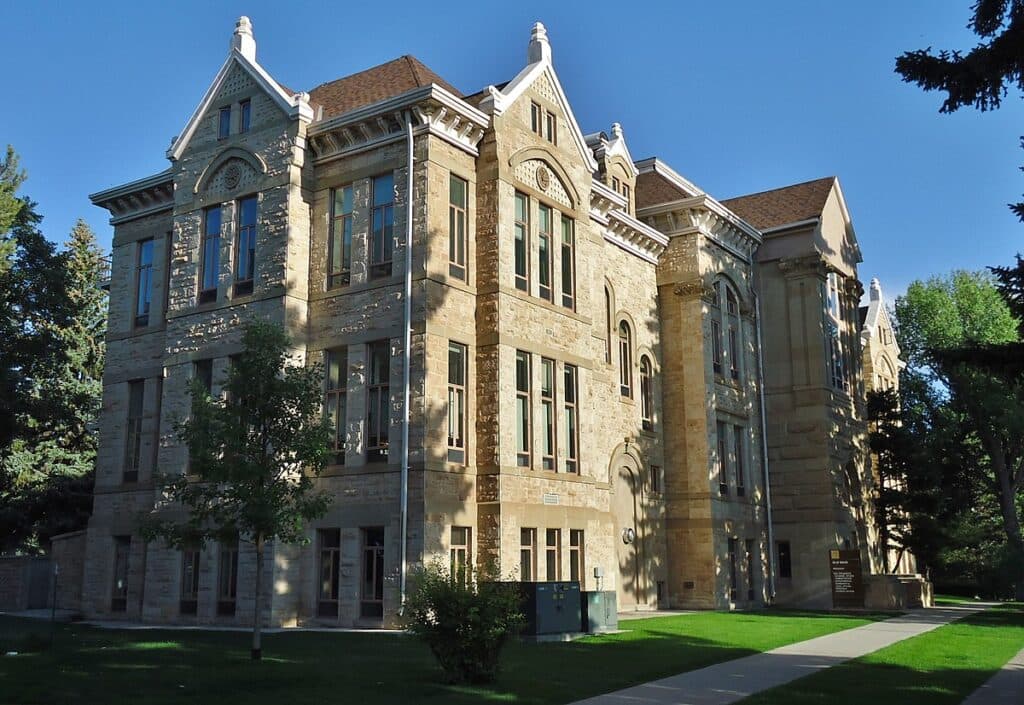Politicized courses are migrating, not disappearing.
On May 15, the University of Wyoming Board of Trustees voted to cancel five degree tracks, including a Ph.D. in Botany, an M.A. in Molecular Biology, and a B.A. in Art History. Most notably, they also cut the bachelor’s degrees in African American and Diaspora Studies and in Gender and Women’s Studies.
According to the university’s Standard Administrative Policy and Procedure, a program is considered low-producing if it averages fewer than five graduates per year at the undergraduate level or fewer than three per year at the master’s level over a five-year period.
That was the case for the Gender and Women’s Studies program, which produced 17 graduates over five years, and the African American and Diaspora Studies program, which produced just three.
To an outsider, the move might look like a decisive break from ideological DEI programs and a step toward broader institutional reform. In reality, it’s a symbolic gesture that fails to address the deeper structural issues at the University of Wyoming.
African American Studies and Gender and Women’s Studies emerged as national academic fads in the late 1960s and early 1970s, driven by the civil-rights and feminist movements, which called for the inclusion of African American history and culture, as well as women’s experiences, in the college curriculum.
These and similar programs quickly gained traction in academia, reaching the height of their influence by the early 21st century. Over time, however, they have been criticized for evolving into training grounds for social-justice warriors and DEI stooges. Critics argue that such degrees privilege Critical Race Theory, Marxist frameworks, and political agendas over academic rigor and intellectual inquiry.
In recent years, these concerns have gained national prominence, particularly during and after the first Trump administration, which cast many of these programs as politicized and divisive. As a result, universities and states across the country have begun reevaluating the purpose and value of such disciplines. The University of Wyoming’s decision fits neatly into this broader trend.
Nevertheless, while riding the anti-DEI wave by eliminating undergraduate degrees in African American Studies and Gender and Women’s Studies, the Board of Trustees has chosen to keep many of the courses from these programs. Moving forward, the courses will form the foundation of minors in gender or diaspora studies.
Besides cutting low-producing degrees, the Board of Trustees also voted to “restructure” the department that housed them. In keeping with the DEI zeitgeist, that department was previously named the School of Culture, Gender & Social Justice. It will now be called the Department of American Cultural Studies. How patriotic!
The Board of Trustees may have canceled degree tracks, but they left the courses, faculty, and departmental structures untouched. The academic and bureaucratic infrastructure behind these DEI programs remains fully intact. This isn’t meaningful reform—it’s more like window dressing.
Eliminating these degree programs and rebranding them as minors does little to address the broader ideological imbalance on campus. Other programs—Political Science and Anthropology, to name two—also reflect a clear ideological bias.
Just as important are underlying structural problems in the university’s broader curriculum. The University of Wyoming offers dozens of Ph.D. programs, including in fields such as entomology, anthropology, and English. Many of these programs are not nationally competitive, offering modest stipends and limited job placement for graduates. They are largely a legacy of the university’s push to achieve R1 research status. It wouldn’t be surprising if many of them are soon labeled low-producing.
For over 30 years, the university has offered a state-focused Master of Public Administration program. It remains effective, ideologically neutral, and well-suited to serve the needs of Wyoming’s state and local governments. Nevertheless, the University of Wyoming’s pursuit of R1 status has, on the whole, made the state’s only four-year public university less responsive to Wyoming’s workforce and civic needs.
While the Board of Trustees’ recent decision may look good on paper, it’s merely a surface-level fix. Without deeper, structural reforms, the university’s underlying problems will persist, and headlines about canceled degree programs will likely become more common.
The University of Wyoming needs genuine reform, not quick publicity stunts. Canceling underperforming degrees is only a first step. University leadership should shift its focus away from R1 vanity projects and prioritize public service and teaching excellence. Wyoming is also well-positioned to join the ranks of states such as Florida, Ohio, and Utah by revitalizing civics education at the college level.
State legislators have a historic opportunity to advance academic renewal in the Cowboy State by overhauling general-education requirements, shifting from block-grant funding to a line-item budget, and refocusing the University of Wyoming on meeting the state’s workforce and civic needs.
